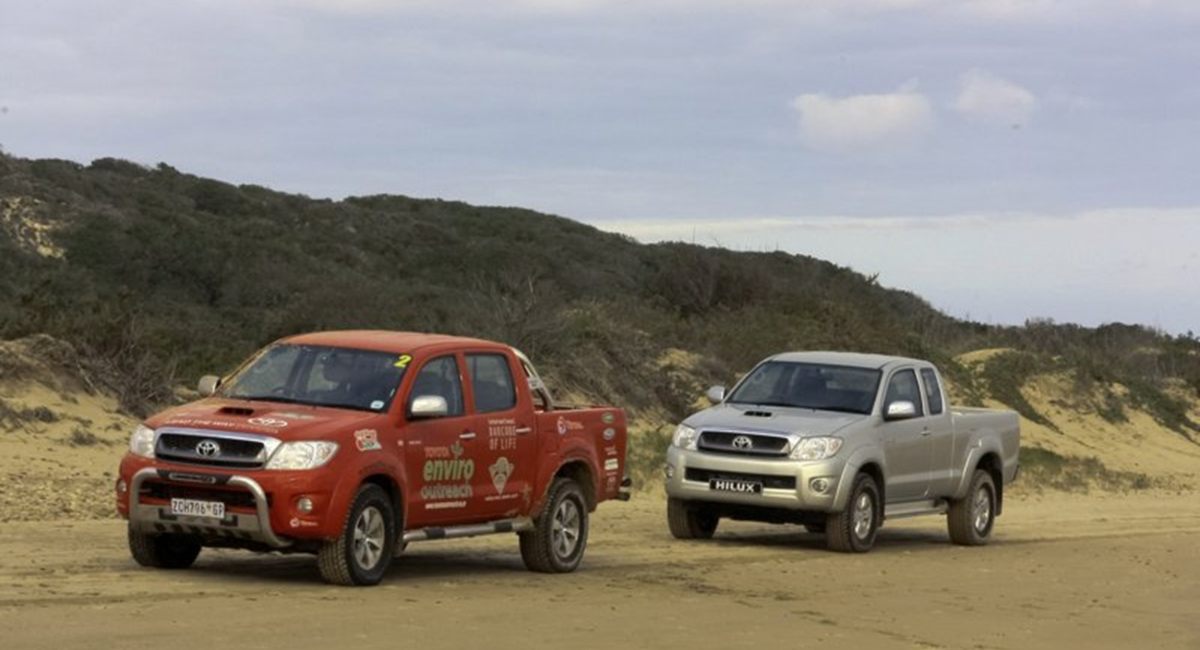Prof Erik Holm:
“After my first experience with the local iBol-team, I have a strong belief that this marks the beginning of a new era in biology. While we are currently at the early stages, like backyard rockets in space exploration, this project has the potential to bring about a paradigm shift in biology. In the past, ambitious multidisciplinary expeditions, such as the voyage of the Beagle and the Swedish Expedition to Southern Africa, propelled the progress of biology. It is immensely gratifying to witness a revival of such joint ventures in my old age. For me, this shared interest and aim of the bio-science community go beyond technical cooperation; it represents a resurgence of our joint fascination with life.”
Dr. Andrew Deacon:
“I can confidently say that the Toyota Environment Outreach project is the ultimate experience for any biodiversity enthusiast. As someone whose research in SANParks focuses on biodiversity, which is also my hobby, I feel privileged to be part of this project. What impressed me the most was the opportunity to enjoy the captivating coastal environment while living our passion for biodiversity.
The project provided us with 9 Toyota vehicles equipped with the best equipment, allowing thirty of us to camp luxuriously. Gerhard and Elmarie Groenewald and their competent team efficiently managed the logistics, ensuring smooth operations.
We had three meals a day from the field kitchen, tents for accommodation, a field laboratory, and all the necessary camping utensils. It was also exciting to interact with renowned experts and learn from their experiences in their respective fields. Ultimately, I appreciate that the vast amount of species sampled in this project will contribute to the IBOL system, an exciting development for this part of Southern Africa.”
Danie van der Walt:
“When I retired in 2009 and handed the reins of 50/50 over to the next production team, I emphasized that besides raising awareness about environmental issues, we unfortunately did nothing more than showcase the destruction of our natural world and document the loss of our biotic diversity over the past 25 years due to human need and greed. While covering the KwaZulu Natal leg of the TEO project for Project Aardwolf on KYKNet, I had the privilege of being in the field with the team, including Prof Erik Holm, one of our co-presenters.
As someone who has been involved in environmental and wildlife documentaries for most of my career, I am acutely aware of the incredible biotic diversity in Southern Africa, but also the continuous and insidious process of species loss, which often goes unnoticed until it is too late. It is evident that everything on Earth is interconnected and dependent on other living beings. Year after year, at international scientific congresses, we hear about more species that have vanished, many of which have not even been described or had their roles and value in nature defined.
The ambitious DNA coding project of TEO is of significant importance and goes beyond being a control for species identification; it also helps us reassess past taxonomy. The TEO DNA coding team, comprised of renowned scientists from various fields, demonstrates unwavering dedication and enthusiasm when searching for species in the region. They understand the crisis we face. This ambitious and valuable project will require the support of the entire country.”
Renier Balt:
“There’s a wise saying that goes, ‘You can only see the picture when you join the dots together. And you can only join the dots when you look backward from where you came to where you are today.’ With the privilege of participating in the growing endeavor that is now TEO, it is evident that this project has direction and growing significance. Bio-scientists from various disciplines come together in this internationally recognized project to share information and contribute their time and unique knowledge in their respective fields. Being a citizen scientist and part of this project is a unique and special experience.
We get to witness the vast knowledge of nature held by leaders in their fields and understand the magnitude of the challenge for South Africa to participate sustainably in the iBol project. As citizens and nature lovers, our contribution must grow. The cost of having bio-scientists do all the work is prohibitively high. Citizen scientists can assist by helping scientists find species and reducing sampling costs.
In the future, with proper training and regulations in place, citizen scientists could even become increasingly involved in the sampling process. In the meantime, participating in projects like the ViTH project (the Virtual Tree Herbarium) at is a small step in the right direction. More initiatives should be implemented soon to involve the public and citizen scientists. TEO is a world-class project and a gateway for bio-scientists to meet, share, and participate in iBol.”
The text includes reflections from Prof Erik Holm, Dr. Andrew Deacon, Danie van der Walt, and Renier Balt, highlighting their experiences, thoughts, and the importance of citizen scientists’ contributions in biodiversity research.
